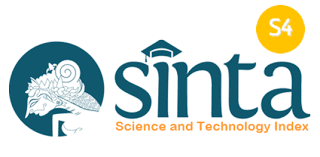The Role of PAI Teachers in Forming Pancasila Student Profiles At Elementary School
Abstract
Apart from being caused by a low understanding of religious values, the problems of irregularities in the education system that we often encounter such as brawls, bullying, violation of school rules, and sexuality, are also caused by a lack of understanding of the values contained in Pancasila. PAI teachers are not only tasked with transforming religious insights, but also play a role in shaping character according to the values contained in Pancasila MI Narrative Quran Lamongan is a relatively new madrasa among other madrasas that have developed in the middle of Lamongan city and is known the orientation of tahfidz and its Al-Quran Narration as a madrasa icon. The focus of the research was to find out the PAI learning process in forming Pancasila student profiles and what is the role of PAI teachers in forming Pancasila student profiles at MI Narrative Quran Lamongan. This type of research is descriptive qualitative with data collection carried out through observation methods, interview methods and documentation methods. The research results explain thatPAI learning carried out in forming Pancasila student profiles at MI Narrative Quran Lamongan is carried out through a curriculum developed by madrasas, namely WIRIDQU, QURMA, and LITBAS with a gradual, sustainable, and integrated system. The role of PAI teachers in forming Pancasila student profiles is as activators, trainers, role models, motivators and evaluators.
Copyright (c) 2023 Wahyuni Ahadiyah

This work is licensed under a Creative Commons Attribution-ShareAlike 4.0 International License.






